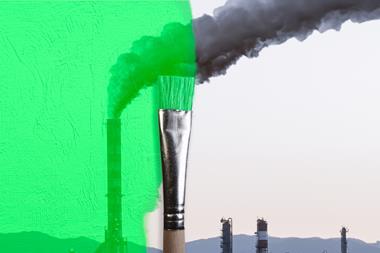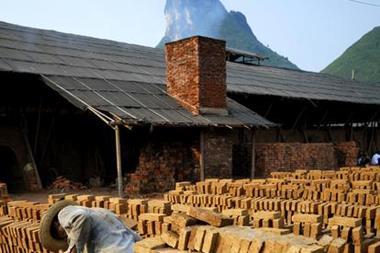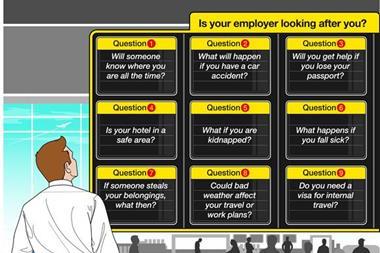Huge global companies have been used to having it their own way, often at great cost to local communities and the environment. What are the issues that should be on every multinational’s risk management agenda?
R oyal Dutch Shell was ranked the eighth most environmentally and socially controversial company last year in a report by consultancy RepRisk. One area that continues to damage Shell’s reputation is the impact of its oil and gas operations in Nigeria. The long list of accusations levelled at Shell includes bribery, mistreatment of communities and environmental damage. Last year, Shell agreed to pay $48.2m (€35m) to avoid legal proceedings in the USA over accusations that it bribed Nigerian civil servants to gain access to the Boriga oil field. Shell also came under fire when it paid for a report by the UN Environment Programme that exonerated the company for oil pollution in the Niger Delta.
An Amnesty International report states: “In over half a century of Shell’s operations in the Niger Delta, thousands of oil spills have left an appalling legacy of environmental harm.” And at the time of writing, Shell was under scrutiny by the Dutch parliament for the environmental and human rights impact of its operations in Nigeria.
At best a public relations disaster and at worst a human rights tragedy, what lessons can other multinationals learn from this story?
1. Take responsibility
Don’t try to shirk responsibility. Organisations that make an effort to clean up after themselves will get much better credit and treatment from the media and public than those who try to avoid responsibility altogether.
Companies should apply rigorous ethical standards. They cannot abandon their ethical codes when they leave their home markets.
At home, in the developed markets of the West, the behaviour of multinationals is more likely to be scrutinised thanks to stronger legal control mechanisms and close media scrutiny.
This does not mean that the same principles of fairness and accountability do not apply in far-flung parts of the world. But all too often this is the case – companies can become embroiled in human rights abuses or other acts they would never consider at home.
Ethical behaviour is becoming even more important as companies based in emerging markets grow and begin to compete with established Western brands. In the future, Western companies could fall by the wayside because of their perceived exploitation of less developed countries.
2. Be accountable
According to Amnesty, the root cause of the conflict situation in Nigeria between the locals and the oil industry is a lack of effective accountability and redress for harm to the environment and human rights. Aggrieved and frustrated, some locals have taken things into their own hands, committing acts of sabotage on oil pipelines and installations. “Violent action against the oil industry in the Niger Delta has emerged after years of poor practice, including failure to clean up pollution, a lack of transparency and payment of compensation,” says Amnesty.
3. Act responsibly
Bad corporate behaviour feeds community distrust and anger, which can fuel conflict, notes Amnesty. “If a company believes that financial results are all that are important then they have a view of their business which is entirely out of date,” adds former Conservative minister John Gummer, a member of the UK’s delegation to the climate change conference in Kyoto in 1997 and in Buenos Aires last year.
Social and environmental issues should be intrinsic to how a company thinks of itself. This is important for staff morale, customers and increasingly for investors too. Corporate responsibility is no longer voluntary, it is “pseudo-mandatory”, believes National Grid’s head of environment and global standards, Steve Wallace.
FTSE 100-sized companies should be acting responsibly because their customers, stakeholders and investors expect it.
4. Communicate clearly with your stakeholders
A failure to keep key stakeholders informed is the most common reason for an incident running away from a company in the hands of the media. As every good PR consultant knows, proactive communication is the best way for a company to exert influence over the way news journalists treat a story. Although it’s not always possible to put a positive spin on issues, communicating in other ways – such as through company reporting – is also vital to prevent outsiders and the public getting the wrong impression about your company.
5. Avoid greenwash
The media is increasingly shrewd about companies that spend more on publicising their green efforts than on the environmental initiatives themselves. Central to helping stakeholders make sense of the environmental and emissions-related claims a company might make is a simpler, more effective and reliable set of metrics. Yet investors and the public still don’t have access to transparent and comparable data on carbon emissions, which means they are still subject to greenwash.
But the world is getting hotter and carbon emissions are believed to be the main reason. With the failure of the climate change talks in Copenhagen to come up with a strict set of rules to keep global warming within a 2°C increase, the onus is firmly on environmentally conscious businesses to set their own targets. The corporate sector should not wait for carbon reduction commitments to be forced upon them.
The best businesses think beyond the boundaries of corporate social responsibility. Doing the right thing doesn’t merely involve corporate philanthropy. Organisations should ensure that sustainability pervades everything that they do. That means, for example, making sure products in your supply chain are sourced from environmentally, as well as socially, sustainable places.
6. Human rights can’t be ‘offset’
A company might make positive contributions to an area by providing employment or development, but that does not mean it can act irresponsibly in other areas. As Amnesty puts it: “In human rights terms, positive action in one area does not absolve any actor of responsibilities for human rights harms elsewhere.”
7. Don’t think you hold all the cards
Evidence recently released by the WikiLeaks website suggests that Shell once thought it had absolute influence over Nigerian officials. But it’s naïve for multinationals to believe they have the power to influence governments in poor countries.
According to consultancy Maplecroft chief executive Alyson Warhurst, the balance of power is shifting and increasingly the governments of poorer countries are assembling a strong cadre of well-educated leaders who will do the best for their countries. This means giving contracts to the best bidders – and that will not include companies that ignore their environmental footprint or fail to engage properly with local communities. Companies that fail to accept this, convinced they can hold sway over the government in poor countries, will be dismissed.
8. Look to the past as well as the future
Until past grievances are addressed properly, the people affected cannot close the door and look to the future. The way forward includes accountability and redress for past wrongs, where they exist.
9. Address root causes as well as symptoms
The oil industry in the Niger Delta faces serious security threats. It is one of the most dangerous oil-producing parts of the world. But the use of force against the militants, while in some cases unavoidable, may also exacerbate the problem.
10. Fight corruption
Multinationals continue to prop up corrupt regimes and support the division of society by paying bribes overseas.
In developing countries alone, politicians and officials are estimated to receive bribes of up to $40bn a year, according to Transparency International. Efforts to combat this problem on the bribe-payers side have stepped up in recent years. Strict penalties have left some companies red faced and others looking over their shoulders.
Almost one in five businesses claim to have lost business as a result of a competitor paying a bribe, according to Transparency International, which indicates the scale of the problem. Tackling this problem should be high on every company’s to do list – bribery is bad for business and society at large. SR
Most environmentally and socially controversial companies of 2010
Rank Company
1 Transocean
2 BP
3 Vedanta Resources
4 Exxon Mobil Corp
5 Foxconn Electronics
6 Chevron Corporation
7 BG Group
8 Royal Dutch Shell
9 Sinar Mas Group
10 Magyar Aluminium
Source: RepRisk



















No comments yet